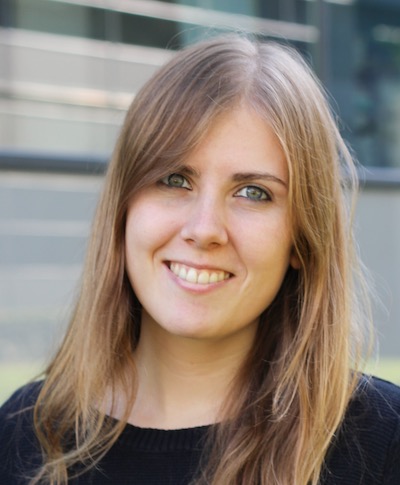
SPEAKER PROFILE |
 Jessica Clough Adolphe Merkle Institute, University of Fribourg Switzerland |
Mechano-Imaging in Polymeric Materials: Molecular Mechanophores and Photonic Elastomers
Abstract
Polymers are ubiquitous in the modern world, composing materials as diverse as deformable elastomers in car tires, soft hydrogels for tissue mimics and strong, tough ballistic glass. Understanding their ability to withstand deformation has driven the development of optically mechano-sensing polymers. However, the mechano-sensitivity of these systems remains restricted, activating at one, usually high, stress threshold.
To overcome this limitation, we have developed broadly applicable mechano-sensors, or “mechano-pigments”, capable of reporting on a wide range of deformations in different polymeric matrices. The sensors are spherical, photonic assemblies of silica colloids, contained in a softer, polymeric matrix cross-linked by a molecular mechano-sensor, spiropyran. The photonic array changes color upon small deformation and the spiropyran transforms to fluorescent merocyanine at larger deformations. Mechanical characterisation of single pigments demonstrated the inherent tuneability of their mechano-response. The mechano-pigments were also dispersed in polyurethanes and polyethylene to investigate necking phenomena, highlighting their promise as a platform for sensing a wide deformation range in polymeric materials that are difficult to access with established approaches.
To overcome this limitation, we have developed broadly applicable mechano-sensors, or “mechano-pigments”, capable of reporting on a wide range of deformations in different polymeric matrices. The sensors are spherical, photonic assemblies of silica colloids, contained in a softer, polymeric matrix cross-linked by a molecular mechano-sensor, spiropyran. The photonic array changes color upon small deformation and the spiropyran transforms to fluorescent merocyanine at larger deformations. Mechanical characterisation of single pigments demonstrated the inherent tuneability of their mechano-response. The mechano-pigments were also dispersed in polyurethanes and polyethylene to investigate necking phenomena, highlighting their promise as a platform for sensing a wide deformation range in polymeric materials that are difficult to access with established approaches.
Bio
Jessica M. Clough is a senior researcher at the Adolphe Merkle Institute in Fribourg, Switzerland. She completed her undergraduate studies in Natural Sciences (Chemistry) at the University of Cambridge, U.K. in 2012, and obtained her Ph.D. in 2016 on mechanically induced chemiluminescence in polymers, supervised by Prof. Rint Sijbesma at Eindhoven University of Technology, The Netherlands. As a postdoctoral researcher with Prof. Joris Sprakel at Wageningen University, she investigated colloidal photonic materials for use as pigments. In 2020, she began an independent Women in Science (WINS) research fellowship within the group of Prof. Christoph Weder, awarded by the NCCR for Bio-Inspired Materials. Her current research is focused on developing optical probes for deformation in polymeric materials.